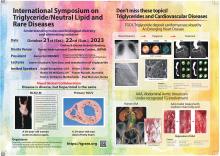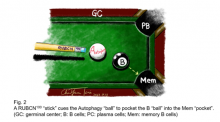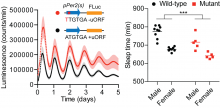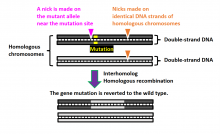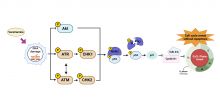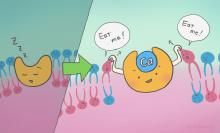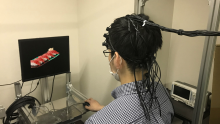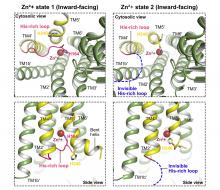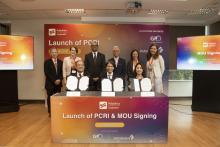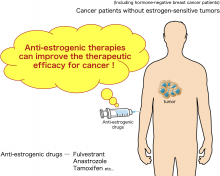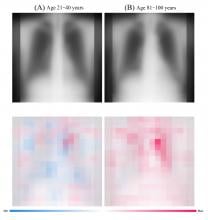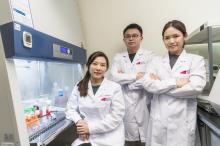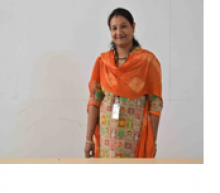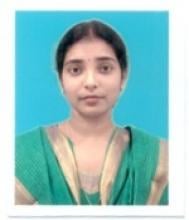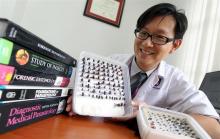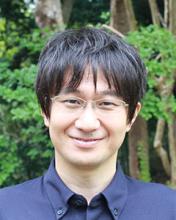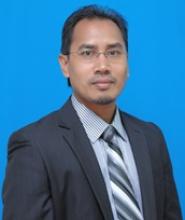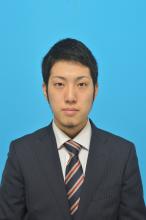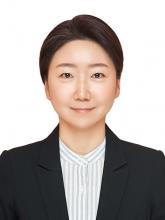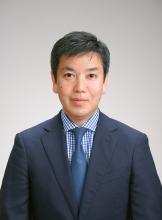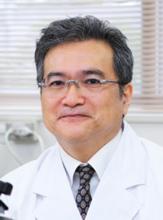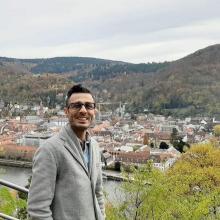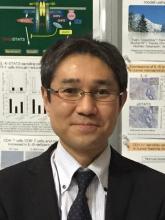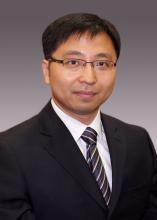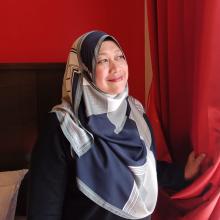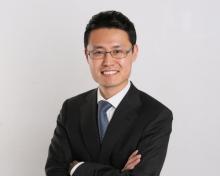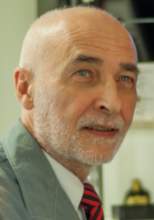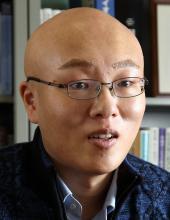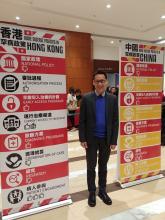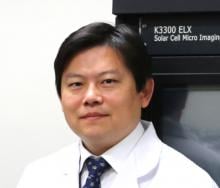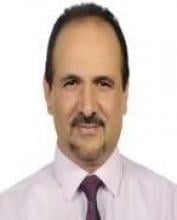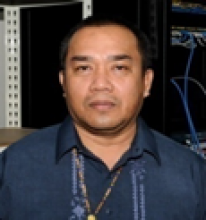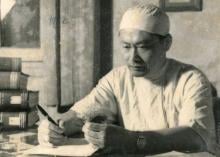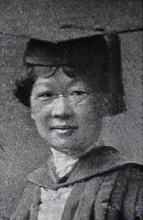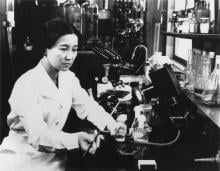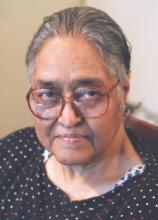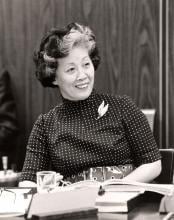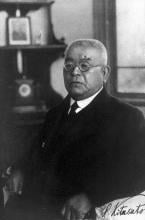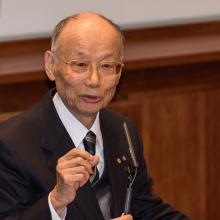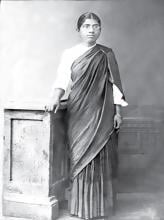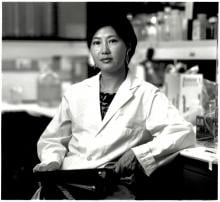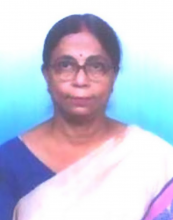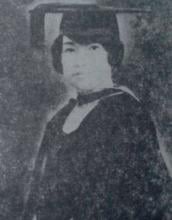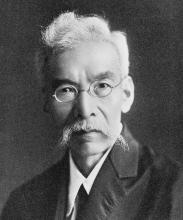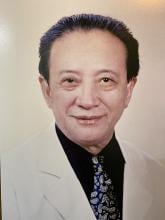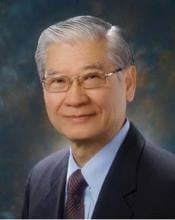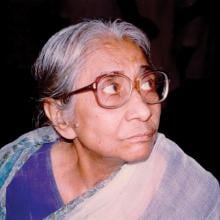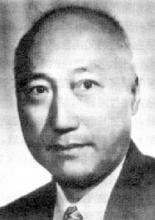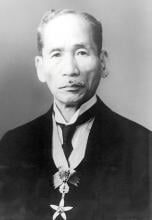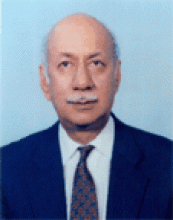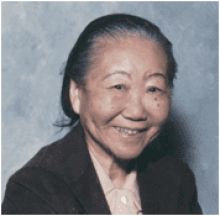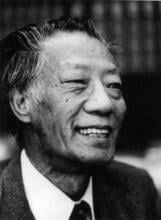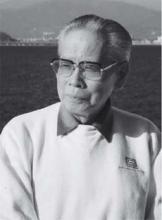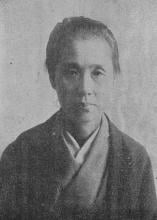Health
News
11 Oct 2023
The International Symposium on Triglyceride/Neutral Lipid and Rare Diseases will be held at the Kyoto International Conference Center on October 21 and 22, 2023. The symposium is organized by the International Symposium on Triglyceride/Neutral Lipid and Rare Diseases Conference Committee, which is led by Dr. Ken-ichi Hirano (Graduate School of Medicine, Osaka University) and the Japan Intractable Diseases (Nanbyo) Research Foundation.
10 Oct 2023
Asia’s premier technology-matching platform returns for its 11th edition from 31 October to 2 November at Marina Bay Sands.
05 Oct 2023
Hunting for supermassive black holes, Coastal survival at risk, Calcium and dead cell clean-up, Two naps are better than one & Pineapple leaf prosthetics. Read all in the latest Editor's Choice.
05 Oct 2023
The finalists in the Applied Microbiology International Product of the Year Award 2023 have been announced. The awards promote the research, groups, projects, products and individuals who are shaping the future of applied microbiology.
03 Oct 2023
The researchers from Osaka University showed how two psychological factors, belief in just deserts (BJD) and human rights restrictions (HRR), differ across countries. BJD tended to be higher in Japan and lower in the UK, whereas HRR was higher in China and lower in Japan. Public health messages for high-HRR individuals could potentially be used effectively to reduce disease-related discrimination and prejudice.
29 Sep 2023
The authors discovered a shorter isoform of Rubicon called RUBCN100, which enhances autophagy in B cells.
29 Sep 2023
The authors identified a structure in the circadian mRNA Period2 that affects the sleep-wake cycle. The results indicate how translation and post-transcriptional processes influence the body’s internal clock and its impact on sleep patterns.
15 Sep 2023
Researchers led by Osaka University developed a novel genome editing technique known as NICER, which results in significantly fewer off-target mutations than CRISPR/Cas9 editing. The technique uses a different type of enzyme that makes single-stranded “nicks” in the DNA. Repair of these nicks is more efficient and accurate than repair of double-strand breaks caused by the current CRISPR/Cas9 editing. This technique represents a novel approach for the treatment of genetic diseases caused by heterozygous mutations.
15 Sep 2023
Asia Research News monitors the latest research news in Asia. Some highlights that caught our attention this week are a previously unrecorded species of ant found in someone’s backyard, comparing traditional medicine to drugs for indigestion, and how breastfeeding can help babies develop a healthy gut.
15 Sep 2023
- Initial research findings from the project led by the Korea Environmental Industry & Technology Institute, focused on “Advancing Island Wildlife Materials.”
- Contributing to securing wildlife and constructing utility information big data.
15 Sep 2023
A reanalysis of studies on night shift naps reveals the ideal snoozing schedule that may help combat fatigue and drowsiness when staying up all night.
14 Sep 2023
Scientists have found that extracellular calcium mediates the activation of a membrane protein that waves the flag signalling cell death
11 Sep 2023
Researchers have unveiled an intriguing phenomenon of cellular reprogramming in mature adult organs, shedding light on a novel mechanism of adaptive growth. The study, which was conducted on fruit flies (Drosophila), provides further insights into dedifferentiation - where specialized cells that have specific functions transform into less specialized, undifferentiated cells like stem cells.
11 Sep 2023
Patients with a specific form of chronic indigestion react differently to images of food, compared to healthy control subjects or patients with irritable bowel syndrome.
10 Sep 2023
In this collaborative project between Newcastle University and Universiti Malaysia Perlis (UniMAP), the team aimed to create a sustainable, cost-effective lower limb prosthetic socket (LLPS) using natural fiber-reinforced composites. The objectives included designing a green LLPS, assessing its environmental impact, and engaging stakeholders. Pineapple Leaf Fiber (PALF) was chosen for sustainability. The project has also inspired worldwide interest in sustainable LLPS development through a press release, receiving inquiries from students at Nanyang Technological University in Singapore and a group of 7th graders in the USA.
08 Sep 2023
Asia Research News monitors the latest research news in Asia. Some highlights that caught our attention this week are a new species of fish that was spotted being sold at local markets, how humans almost went extinct, and an Earth-like planet that may be lurking in our solar system.
08 Sep 2023
Capturing carbon dioxide, Shells go nuclear, Worms surf electric fields, Brain repair & Creating matter from light. Plus from our blog: Monitoring research for further impact. Read all in the latest Editor's Choice.
04 Sep 2023
Researchers from Osaka University have revealed that the expression of a specific isoform of GREB1 Is4 is induced in malignant melanoma cells by the melanocyte-specific transcription factor, MITF. They revealed that GREB1 Is4 stimulates pyrimidine biosynthesis and promotes cancer cell proliferation. Furthermore, the anti-tumor effect of antisense nucleic acids against GREB1 showed a potential new modality for malignant melanoma.
04 Sep 2023
In recent years, an emerging zoonotic pathogen called E. albertii, transmitted by wild animals such as raccoons, has garnered attention due to its remarkable similarities to several strains of Escherichia coli (E. coli), including O157, and its potential to cause severe illness, particularly in children. A research group at Osaka Metropolitan University has developed a novel culture medium that allows for the selective cultivation of E. albertii from raccoon fecal samples. This enabled the successful isolation of E. albertii even from samples with very low quantities of this bacterium. Their findings are expected to further elucidate the bacteriological characteristics of E. albertii and to contribute to the control of foodborne illnesses.
01 Sep 2023
Asia Research News monitors the latest research news in Asia. Some highlights that caught our attention this week are the detection of a rare isotope of oxygen, converting waste coconut fibers into a flavoring compound, and a smart contact lens battery that can be powered by tears.
31 Aug 2023
Roughly 10% of the proteins in our body rely on zinc. A group of researchers has unearthed the secrets behind a tiny but crucial protein that shuttles zinc ions within our bodies, offering a deeper understanding of how our cells maintain optimal health.
30 Aug 2023
How much is adequate screen time for a child? It is the question at the forefront of many parents’ minds. Now, a recent cohort study has found that the amount of screen time spent by one-year-olds is associated with developmental delays.
29 Aug 2023
It is the first local research and innovation platform enabling Primary Care Professionals from public and private healthcare to deliver stronger primary care and improve patients’ health outcomes
23 Aug 2023
Osaka Metropolitan University researchers conducted a 5-year claims-based study of 655 non-frail or pre-frail older adults who were certified as having low care needs to investigate the relationship between the risk of frailty and two types of care services. The results showed that users of community-based adult care services had a 40% reduced risk of developing frailty compared to non-users. This suggests that utilizing appropriate support and services can prevent the progression of frailty.
21 Aug 2023
Deepak Verma from Chulalongkorn University and his international team of researchers are exploring ways to enhance chitosan using techniques like adding photosensitizers, dendrimers, and chemical modifications. They also surveyed the use of chitosan nanoparticles for medical purposes, notably wound dressings.
21 Aug 2023
Anti-estrogenic therapies can suppress the growth of cancer that does not express estrogen receptors; when combined with immune checkpoint inhibitor therapies, they halt tumor progression in mice models.
18 Aug 2023
Asia Research News monitors the latest research news in Asia. Some highlights that caught our attention this week are vegan 3D printed calamari rings, 4 000-year-old ceramic pipes and ditches, and how swirling stars make some rethink how gravity works.
17 Aug 2023
Japanese fossil forest found, AI finds a way to people’s hearts, Language diversity and child social development & Supplement for kidney disease. Plus Submissions open for Asia Research News 2024. Read all in the latest Editor's Choice.
16 Aug 2023
Osaka Metropolitan University scientists have developed an AI model that accurately estimates a patient’s age, using chest radiographs of healthy individuals collected from multiple facilities. Furthermore, they found a positive relationship between differences in the AI-estimated and chronological ages and a variety of chronic diseases, such as hypertension, hyperuricemia, and chronic obstructive pulmonary disease. In the future, it is expected that AI biomarkers will be developed to predict life expectancy, estimate the severity of chronic diseases, and forecast surgery-related risks.
16 Aug 2023
A research team co-led by City University of Hong Kong (CityU) and The University of Hong Kong (HKU) has recently made a significant advancement in spinal cord injury treatment by using genetically modified human neural stem cells (hNSCs). They found that specifically modulating a gene expression to a certain level in hNSCs can effectively promote reconstruction of damaged neural circuits and restore locomotor functions, offering great potential for new therapeutic opportunities for patients with spinal cord injury.
Events
Sorry, no events coming up for this topic.
Researchers
Dr. Mamta Agrawal
BSc. (Maths, Physics, Chemistry), MSc. (Mathematics),
DCA (Diploma in computer applications)
MCA (Masters in computer applications)
PHD (Mathematics and Computational Biology)
POST DOC (Mathematics and Computational Biology)
completed two research projects: 1. WOS-A (DST New Delhi) 2. Indo-Austria research Projuect (DST-BMWF)
Visited Abrod four countries Thiland, South Korea, Austria, Nepal
Paper Pulication-18
ChpterPublication-1
Book Publication-1
Patent- going on
Dr NK Prasanna is currently working as Sr. Scientist & Editor, Indian Journal of Biochemistry & Biophysics, Research Journals Division at CSIR-National Institute of Science Communication and Policy Research, New Delhi. Before joining CSIR (NIScPR), she was at IIT Guwahati. Dr Prasanna completed her Ph.D from Institute of Medical Sciences, Banaras Hindu University, Varanasi.
In CSIR-NIScPR, She served one important flagship journals viz. Indian journal of Biochemistry and Biophysics (IJBB; ISSN: 0301-1208) It is pertinent to mention that the journal ranks first among all the NIScPR journals as per the available Journal Metrics by international agencies such as Thomson Reuters and Scopus. Details of remarkable academic achievements of IJBB which she spearheading, both nationally and globally. The Indian journal of Biochemistry and Biophysics (IJBB) is a premier SCI-indexed bimonthly peer-reviewed research journal that publishes original research articles in the subject area of biochemistry and biophysics
Jyoti U. Devkota is a Full Professor of Statistics in the Department of Mathematics in Kathmandu University, Nepal. Her research focus is on the development and application of statistical methodology to solve problems in renewable energy, population and health.
Hira Khalid is an associate professor at the Department of Chemistry of Forman Christian College University, Lahore, Pakistan.
Universiti Teknologi MARA (UiTM)
Dr Heo is currently a senior lecturer at the Department of Microbiology and Parasitology, Faculty of Medicine, Universiti Teknologi MARA, Malaysia.
Duke-NUS Medical School
Dr. Tazeen Jafar is a global health leader and expert with a focus on implementation research in hypertension, cardiovascular disease, and chronic kidney disease.
Institute for Integrated Cell-Material Sciences (iCeMS) at Kyoto University
Yuichi Taniguchi is a professor at the Institute for Integrated Cell-Material Sciences (iCeMS)/Graduate School of Biostudies, Kyoto University, a team leader at RIKEN Center for Biosystems Dynamics Research and an adjunct professor at Graduate School of Frontier Biosciences, Osaka University.
International Islamic University Malaysia (IIUM)
Dr Ramli is a Professor at Department of Psychiatry, Kulliyyah of Medicine at the International Islamic University Malaysia (IIUM).
Hokkaido University
Postdoctoral fellow, Faculty of Veterinary Medicine, Hokkaido University, Japan
I am a senior lecturer in the School of the Built Environment. Prior to this I was a post-doctoral researcher at the Cambridge Centre for Housing and Planning Research, University of Cambridge (2001-2004) and a researcher at the Korea Research Institute for Human Settlement (1986-1994). I hold a BSc in Management Studies and MBA from the Univeristy of Ewha, Seoul, Korea and gained my PhD from London School of Economics and Political Science in 2000.
Hokkaido University
Ji-Won Lee is an assistant professor at the Faculty of Dental Medicine at Hokkaido University, Japan,
Duke-NUS Medical School
Dr Danielle Anderson is the Scientific Director of the Duke-NUS Medical School ABSL3 laboratory.
Hokkaido University
Manabu Tokeshi is a Professor at the Division of Applied Chemistry at Hokkaido University.
Tohoku University
A professor at the Bone Regenerative Engineering Laboratory, Regenerative and Biomedical Engineering Division, Graduate School of Biomedical Engineering, Tohoku University, Japan
Institute for Integrated Cell-Material Sciences (iCeMS) at Kyoto University
My research background covers multidisciplinary fields such as Pharmaceutics, Cancer Nanomedicine, Bioengineering and Organ-on-a-chip platforms. My current research focuses on the development of dynamic biological barriers on a chip such as blinking human cornea on a chip.
Hokkaido University
Hidemitsu Kitamura is an associate professor at the Section of Disease Control, the Institute for Genetic Medicine, Hokkaido University, Japan.
The Chinese University of Hong Kong (CUHK)
Li Zhang is an Associate Professor in the Department of Mechanical and Automation Engineering (MAE) and an associate faculty member in Chow Yuk Ho Technology Centre for Innovative Medicine (TIM) and T Stone Robotics Institute (CURI) at The Chinese University of Hong Kong (CUHK). He is also the co-director of CAS SIAT-CUHK Joint Laboratory of Robotics and Intelligent Systems.
Professor Samuel Wong is a clinician with training in both Family Medicine and Public Health. He received his Doctor of Medicine degree from the University of Toronto and completed his Family Medicine residency training in Canada. He completed the Master of Public Health at the Johns Hopkins University, USA and the Doctor of Medicine (MD) research degree at The Chinese University of Hong Kong.
He is the Head of the Division of Family Medicine and Primary Healthcare and the Deputy Director of the School of Public Health and Primary Care since 2019. He has been the Co-Director of the Master of Public Health Programme since 2018 and is the Director of Thomas Jing Centre for Mindfulness Research and Training. He has also been appointed as the Associate Dean (Education) of the Faculty of Medicine since July 2019.
Professor Wong’s research interests include evaluating and developing mindfulness- based and mental health interventions in primary care; evaluating primary care services and developing primary care service models as well as multimorbidity.
Universiti Teknologi MARA (UiTM)
Kartini Ilias is a senior lecturer and clinical psychologist in Faculty of Health Sciences, Universiti Teknologi MARA, Puncak Alam, Selangor.
Korea Advanced Institute of Science and Technology (KAIST)
Professor in Electrical Engineering at Korea Advanced Institute of Science and Technology (KAIST).
Prof. Dr. Francisco J. Barrantes is the Head of the Laboratory of Molecular Neurobiology, BIOMED UCA-CONICET, Buenos
Aires, Argentina.
Yoshihiko Kadoya is a Distinguished Researcher of Hiroshima University, the Director of Hiroshima Institute of Health Economics Research (HiHER) and a Professor of Economics at Hiroshima University.
The Chinese University of Hong Kong (CUHK)
Professor, School of Life Sciences, The Chinese University of Hong Kong
Daegu Gyeongbuk Institute of Science and Technology (DGIST)
Prof. SU-IL IN has been working at DGIST (Daegu Gyeongbuk Institute of Science & Technology) since 2012. He served as Dean of International and External Affairs 2016 ~ 2017. He received his Ph.D. in Chemistry from University of Cambridge in 2008. Subsequently he was a postdoctoral researcher at Technical University of Denmark by 2010. Then he joined the Pennsylvania State University as a postdoctoral researcher in the Department of Chemistry before joining DGIST. Professor In’s current researches include synthesis and analysis of functional nano (bio)-materials for environmentally friendly renewable energy such as photovoltaic, heterogeneous catalysis and biocatalysts. (https://insuil.dgist.ac.kr/)
Hokkaido University
Toru Kondo is Professor of the Division of Stem Cell Biology at the Institute for Genetic Medicine, Hokkaido University.
Professor and Head of Microbiology and Immunology Department,
Faculty of Medicine, Lincoln University College (LUC) Malaysia.
Professor in Agriculture and Education in the Iloilo Science and Technology University Leon Campus (ISAT U). Leon, ILOILO, PHILIPPINES
- « first
- ‹ previous
- 1
- 2
- 3
- 4
Giants in history
Vietnamese surgeon Tôn Thất Tùng (10 May 1912 – 7 May 1982) developed a pioneering technique that reduced the risks and mortality rate of liver operations.
Chinese biochemist Chi Che Wang (1894 - 1979), one of the first Chinese women to study abroad, advanced to prominent research positions at American institutions including the University of Chicago and the Northwestern University Medical School.
Ruby Sakae Hirose (1904 – 1960) was a Japanese-American scientist whose research contributed significantly to our understanding of blood clotting, allergies and cancer.
Flora Zaibun Majid ( 1939–2018) was an accomplished Bangladeshi researcher in botany and nutrition science and the first female chairperson of the Bangladesh Council of Scientific and Industrial Research.
Iranian physician and bacteriologist Azar Andami (8 December 1926 – 19 August 1984) developed a cholera vaccine to combat an outbreak that swept through the Middle East, India, Southeast Asia, and Africa in 1937.
Irene Ayako Uchida’s (8 April 1917 – 30 July 2013) strides to understand genetic diseases such as Down syndrome paved the way for early screening of chromosomal abnormalities in foetuses.
Baron Kitasato Shibasaburo (29 January 1856 – 13 June 1931) was a Japanese physician and bacteriologist whose work led to a new understanding of preventing and treating tetanus, diphtheria and anthrax.
Maggie Lim (5 January 1913 – November 1995) was a Singaporean physician who promoted family planning and expanded the access to clinics to improve the quality of life for mothers and children in Singapore’s early days.
By isolating soil microorganisms and studying the compounds they produce, Satoshi Omura (born 1935) discovered almost 500 organic compounds with unique properties that were produced by these microorganisms, including many new antibiotics.
The founder of the Adyar Cancer Institute in India, Muthulakshmi Reddy (30 July 1886 – 22 July 1968), fought to uplift women and girls from impoverished situations.
Chinese-American virologist and molecular biologist Flossie Wong-Staal (27 August 1946 – 8 July 2020) was the first scientist to clone HIV and determine the function of its genes.
Maharani Chakravorty (1937 – 2015) was one of India’s earliest molecular biologists whose research paved the way for advances in the treatment of bacterial and viral infections.
Archana Sharma (16 February 1932 - 14 January 2008) conducted research into plant and human genetics that expanded the understanding of both botany and human health. In relation to botany, she uncovered the means by which asexually-reproducing plants evolve into new species.
The first Thai woman to receive a degree in medicine, Margaret Lin Xavier (29 May 1898 – 6 December 1932), is best remembered for her compassion towards her less privileged patients.
In 1915, pathologist Katsusaburo Yamagiwa and his research assistant Koichi Ichikawa became the first to prove that chronic exposure to chemicals can cause cancer.
Filipino chemist and pharmacist Manuel A. Zamora (29 March 1870 – 9 July 1929) is best remembered for his discovery of the tiki-tiki formula to combat beriberi, a disease caused by Vitamin B1 deficiency.
After witnessing death and suffering as a youth in his home village during World War II, Nguyễn Tài Thu (6 April 1931 – 14 February 2021) set his sights on alleviating pain by becoming a doctor. After studying Traditional Chinese Medicine in China in the 1950s, Thu returned to Vietnam to serve in military hospitals. Eventually, he became the country’s foremost practitioner of acupuncture, a technique he first learned by inserting needles into himself.
David T. Wong (born 1936) is a Hong Kong-born American neuroscientist who is best known for discovering the antidepressant drug fluoxetine, better known as Prozac.
Indian organic chemist Asima Chatterjee (1917 to 2006) studied the medicinal properties of plant products, especially compounds known as vinca alkaloids.
Hsien Wu (24 November 1893 – 8 August 1959) is widely regarded as the founder of biochemistry and nutrition science in China. He was the first to propose that protein denaturation was caused by the unfolding of the protein, instead of chemical alteration.
Umetaro Suzuki (7 April 1874 – 20 September 1943) was a Japanese scientist best remembered for his research on beriberi, a disease caused by vitamin B1 deficiency, characterized by limb stiffness, paralysis and pain.
Syed Qasim Mehdi (13 February 1941 – 28 September 2016) was a Pakistani molecular biologist who was a founding member of the Human Genome Diversity Project (HGDP), which assessed human diversity by studying human migration, mutation rates, relationships between different populations, genes involved in height and selective pressure.
Tsai-Fan Yu (1911 – 2 March 2007) was a Chinese-American physician and researcher who was the first female full professor at Mount Sinai School of Medicine. She discovered that gout, a condition characterized by the painful inflammation of joints, was caused by elevated levels of uric acid in the bloodstream.
Min Chueh Chang (10 October 1908 – 5 June 1991) was a Chinese-American biologist who studied fertilization in mammalian reproduction.
A Japanese surgeon, Tetsuzo Akutsu (20 August 1922 – 9 August 2007) built the first artificial heart capable of keeping an animal alive.
Ogino Ginko (3 March 1851 – 23 June 1913) was the first registered female doctor to practise modern medicine in Japan.


